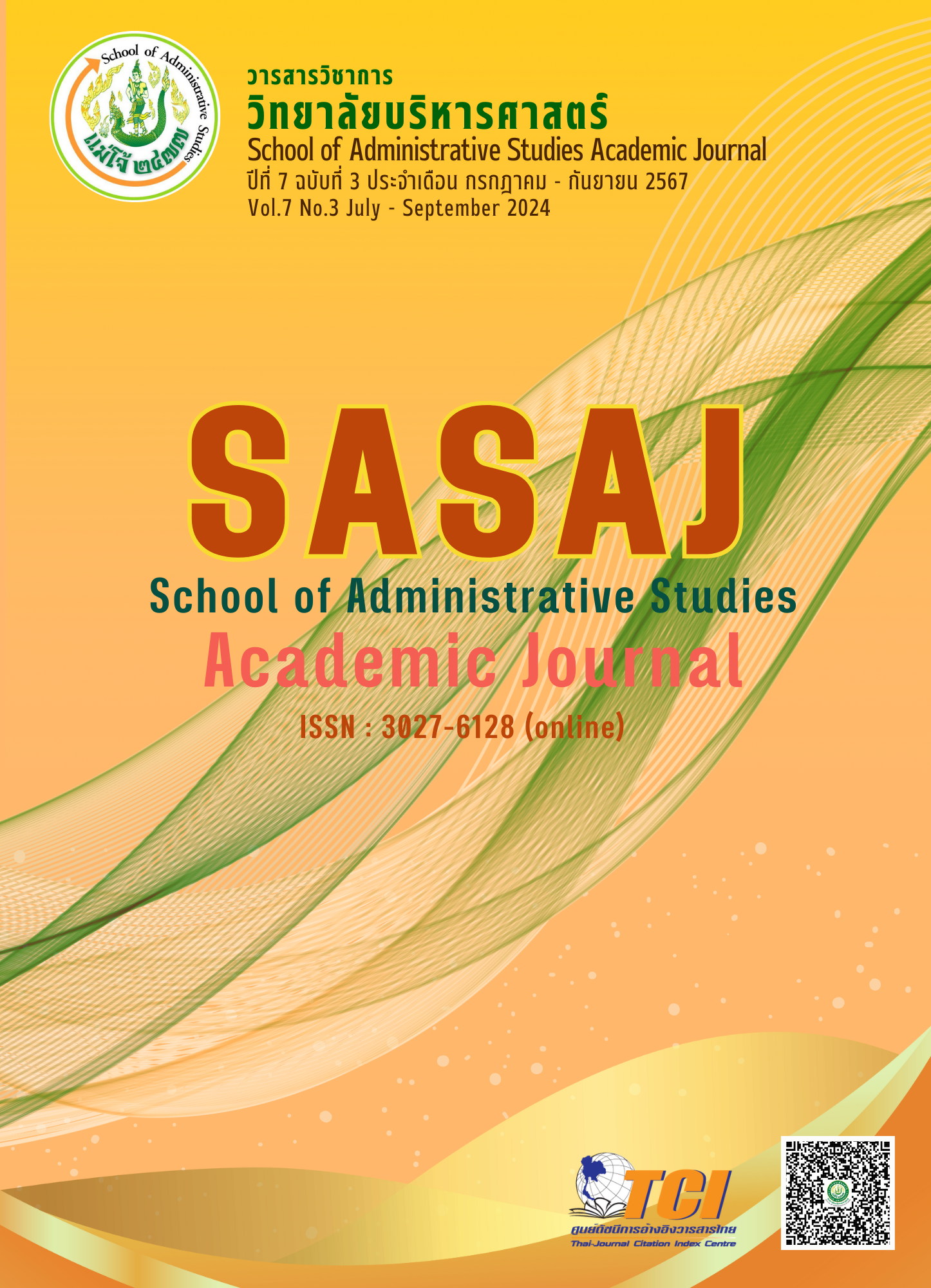การจัดการความพอเพียงทางอาหารของกลุ่มมังสวิรัติ ตามปรัชญาของเศรษฐกิจพอเพียง ในสถานการณ์วิกฤตโควิด-19: กรณีชุมชนมังสวิรัติวิถีธรรม ภูผาฟ้าน้ำ อำเภอแม่แตง จังหวัดเชียงใหม่
Main Article Content
บทคัดย่อ
บทความวิจัยฉบับนี้ มีวัตถุประสงค์เพื่อ ศึกษาปัจจัยที่เป็นอุปสรรคต่อความพอเพียงทางอาหาร และศึกษาการจัดการความพอเพียงทางอาหารของกลุ่มมังสวิรัติตามปรัชญาของเศรษฐกิจพอเพียง ในการควบคุมอุปทานการผลิตและอุปสงค์การบริโภคอาหาร ภายใต้มาตรการปิดพื้นที่ในสถานการณ์วิกฤตโควิด-19 (พ.ศ. 2563-2565) โดยเป็นการวิจัยแบบผสมผสานด้วยการสัมภาษณ์เชิงลึก การสนทนากลุ่ม และแบบสอบถาม คัดเลือกประชากรแบบเจาะจงของชุมชนในและนอกพื้นที่ภูผาฟ้าน้ำ ชุมชนละ 70 คน
ผลการวิจัย พบว่า ชุมชนในพื้นที่ภูผาฟ้าน้ำ ส่วนใหญ่เป็นผู้หญิง เดินทางมาจากพื้นที่อื่น ทำให้ขาดความคุ้นเคยกับสภาพพื้นที่และการทำการเกษตร ทั้งนี้ปัจจัยที่เป็นปัญหาต่อความพอเพียงด้านอาหารของชุมชน ได้แก่ 1) ปัจจัยสืบเนื่องจากการระบาดของโควิด-19 2) ปัจจัยด้านลักษณะประชากรที่ส่วนใหญ่เป็นเพศหญิง และ 3) ปัจจัยด้านบริบทของพื้นที่สูง สำหรับการจัดการความพอเพียงอุปทานอาหาร ประกอบด้วย 1) การผลิตอาหารในชุมชนและการใช้วัตถุดิบธรรมชาติ 2) การจัดการอาหารจากแหล่งภายนอกและเครือข่าย และการจัดการความพอเพียงด้านอุปสงค์การบริโภคอาหาร ประกอบด้วย 1) การควบคุมและการลดการบริโภคตามความต้องการของจิตใจ (ลดความอยาก) ของสมาชิกในชุมชน 2) การบริโภคเท่าที่จำเป็น ทั้งนี้ไม่พบความแตกต่างกันทางสถิติ (P>0.05) ของการจัดการอุปทานและอุปสงค์ระหว่างชุมชนภายในและภายนอก โดยดัชนีสัดส่วนของอุปทานต่ออุปสงค์ของชุมชนมีค่าเท่ากับ 1.02 ผู้เชี่ยวชาญประเมินรูปแบบการจัดการความพอเพียงทางอาหารของชุมชนมีค่าเฉลี่ยความเหมาะสมในระดับมากที่สุด ความสอดคล้องกับปรัชญาของเศรษฐกิจพอเพียงระดับมาก ชุมชนภายในและภายนอกประเมินความเหมาะสมในระดับมากที่สุด และระดับมาก ตามลำดับ แสดงให้เห็นว่า การจัดการความพอเพียงทางอาหารที่เหมาะสมของชุมชนเป็นการจัดการอุปทานการผลิตให้มีปริมาณอาหารที่พอเพียงด้วยหลักการพึ่งตนเองและเครือข่าย และจำเป็นต้องมีการจัดการอุปสงค์ด้วยการลดการบริโภคที่เกินความจำเป็นด้วยการน้อมนำปรัชญาของเศรษฐกิจพอเพียงมาปรับใช้ทั้งในด้านอุปทานและอุปสงค์
Article Details

อนุญาตภายใต้เงื่อนไข Creative Commons Attribution-NonCommercial-NoDerivatives 4.0 International License.
ลิขสิทธิ์
เอกสารอ้างอิง
กนกวรา พวงประยงค์. (2564). พฤติกรรมการช่วยเหลือสังคมในช่วงวิกฤตโควิด–19 ของวัยทำงานในกรุงเทพมหานคร. วารสารสังคมศาสตร์และมานุษยวิทยาเชิงพุทธ, 6(5), 202-223.
กระทรวงสาธารณสุข กรมอนามัย สำนักโภชนาการ. (2563). ปริมาณสารอาหารอ้างอิงที่ควรได้รับประจำวันสำหรับคนไทย พ.ศ. 2563. กรุงเทพฯ: เอ.วี. โปรเกรสซีฟ.
กฤษณา รุ่งโรจน์วณฺชย์. (2559). หลักการจัดการทรัพยากรเกษตร (พิมพ์ครั้งที่ 2). นนทบุรี: มหาวิทยาลัยสุโขทัยธรรมาธิราช.
จิรนันท์ ทับเนียม, วัชรพงษ์ วัฒนกูล, มนัส สุวรรณ, และ ภัทรวุฒิ สมยานะ. (2565). อาหารมังสวิรัติแบบแพทย์วิถีธรรมบนพื้นฐานปรัชญาของเศรษฐกิจพอเพียง. ใน การประชุมสัมมนาวิชาการนำเสนอผลงานวิจัยระดับชาติเครือข่ายบัณฑิตศึกษา มหาวิทยาลัยราชภัฏภาคเหนือ ครั้งที่ 22 (น. 159-170). นครสวรรค์: มหาวิทยาลัยราชภัฏนครสวรรค์.
ใจเพชร กล้าจน. (2559). จิตอาสาแพทย์วิถีพุทธเพื่อมวลมนุษยชาติ (วิทยานิพนธ์ปริญญาดุษฎีบัณฑิต). มหาวิทยาลัยราชภัฏสุรินทร์, สุรินทร์.
เทวัญ ธานีรัตน์, และ วินัย แก้วมุนีวงศ์. (2553). อาหารสดเพื่อสุขภาพ. ใน เบญจพร สุธรรมชัย, และ นภัส แก้ววิเชียร (บก.), การดูแลสุขภาพผู้สูงอายุแบบบูรณาการ (ฉบับปรับปรุง) (พิมพ์ครั้งที่ 2) (น. 47-56). กรุงเทพฯ: ศิริชัยการพิมพ์.
นิตยาภรณ์ สุระสาย. (2563). รูปแบบการบูรณาการวัฒนธรรมการดูแลสุขภาพด้วยการแพทย์วิถีธรรม (วิทยานิพนธ์ปริญญาดุษฎีบัณฑิต). มหาวิทยาลัยราชภัฏอุบลราชธานีอุบลราชธานี.
บุญชม ศรีสะอาด. (2553). การวิจัยเบื้องต้น (พิมพ์ครังที่ 8). กรุงเทพฯ: สุวีริยาสาส์น
บุญธรรม กิจปรีดาบริสุทธิ์. (2553). สถิติวิเคราะห์เพื่อการวิจัย (พิมพ์ครั้งที่ 5). กรุงเทพฯ: จามจุรีโปรดักท์.
พระครูธรรมธรไพบูลย์ พิศาลวชิโรภาส. (2562). ค่านิยมบริโภคตามแนวพระพุทธศาสนา. วารสารมหาจุฬานาครทรรศน์, 6(9), 4261-4280.
พัชนียา ชูแสงศร. (2566). พฤติกรรมการบริโภคอาหารที่ไม่ดีต่อสุขภาพของนักศึกษามหาวิทยาลัยราชภัฏมหาสารคาม. Journal of Organizational Management Excellence, 1(1), 1-15.
ยุทธศาสตร์ชาติ (พ.ศ.2561 – 2580). (2561, 13 ตุลาคม). ราชกิจจานุเบกษา. เล่มที่ 135 ตอนที่ 82 ก, หน้า 5.
วสุนธรา รตโนภาส. (2560). กินดีสำหรับสุขภาพดีในศตวรรษที่ 21. สักทอง: วารสารวิทยาศาสตร์และเทคโนโลยี (สทวท.), 4(1), 1-13.
วิภา ภิญโญโชติวงศ์, และ ลภัสนันท์ จิระพุฒิพัฒน์. (2564). การพัฒนาตามหลักกสิกรรมธรรมชาติสู่ระบบเศรษฐกิจพอเพียง. กรุงเทพฯ: มูลนิธิกสิกรรมธรรมชาติ.
สามารถ ใจเตี้ย, สุรศักดิ์ นุ่มมีศรี, สิวลี รัตนปัญญา, จันจิราภรณ์ สท้านไตรภพ, ณัทธร สุขสีทอง, ศศิกัญญ์ นำบุญจิตต์,...อัจฉรา คำฟั่น. (2565). การใช้ประโยชน์ และการมีส่วนร่วมของประชาชนเพื่อการอนุรักษ์พืชอาหารจากป่าชุมชนสะลวง-ขี้เหล็ก อำเภอแม่ริม จังหวัดเชียงใหม่. วารสารการพัฒนาชุมชนและคุณภาพชีวิต, 10(2), 180–189.
สำนักงานคณะกรรมการพิเศษเพื่อประสานงานโครงการอันเนื่องมาจากพระราชดำริ (สำนักงาน กปร.). (2563). แนวพระราชดำริการพัฒนาสู่ความยั่งยืน. กรุงเทพฯ: สหมิตรพริ้นติ้ง แอนด์พับลิสซิ่ง.
อนงค์ คำตั๋น, วันเฉลิม ฤทธิมนต์, และ สุรงค์ พ้องพาน. (2566). ปัจจัยทางด้านพฤติกรรมการบริโภคอาหารที่มีผลต่อภาวะโภชนาการเกินของประชากรวัยทำงานกลุ่มชาติพันธุ์กะเหรี่ยงในพื้นที่หมู่บ้านพัฒนาเพื่อความมั่นคงพื้นที่ชายแดนอันเนื่องมาจากพระราชดำริ (หมู่บ้าน พมพ.) ตำบลเวียงเหนือ อำเภอปาย จังหวัดแม่ฮ่องสอน. วารสารโรงพยาบาลแพร่, 31(1), 43-58.
อภิชัย พันธเสน. (2549). พุทธเศรษฐศาสตร์ ฉบับนิสิต นักศึกษา และประชาชน. กรุงเทพฯ: สำนักพิมพ์ดอกหญ้า.
อารียา มหาวรมากร. (2557). เส้นทางการเปลี่ยนผ่านสู่การบริโภคอย่างมีสติ (วิทยานิพนธ์ปริญญามหาบัณฑิต). มหาวิทยาลัยมหิดล, นครปฐม.
Acheampong, E.O., Macgregor, C. J., Sloan, S., & Sayer, J. (2019). Deforestation is driven by agricultural expansion in Ghana's forest reserves. Scientific African, 5, 1-11. Retrieved from https://doi.org/10.1016/j.sciaf.2019.e00146
Best, J. W., & Kahn, J. V. (1988). Research in education (7th ed.) New Delhi: Prentice-Hall of India.
Gadal, N., Shrestha, J., Poudel, M. N., & Pokharel, B. (2019). A review on production status and growing environments of rice in Nepal and in the world. Archives of Agriculture and Environmental Science, 4(1), 83-87. Retrieved from https://dx.doi.org/10.26832/24566632.2019.0401013
McLaughlin, D., & Kinzelbach, W. (2015). Food security and sustainable resource management. Water Resources Research, 51(7), 4966-4985. Retrieved from https://doi.org/10.1002/2015WR017053
Niles, M. T., Bertmann, F., Belarmino, E. H., Wentworth, T., Biehl, E., & Neff, R. (2020). The early food insecurity impacts of COVID-19. Nutrients, 12(7), 2096. Retrieved from https://doi.org/10.3390/nu12072096
Vernooy, R., Sthapit, B., Otieno, G., Shrestha, P., & Gupta, A. (2017). The roles of community seed banks in climate change adaption. Development in Practice, 27(3), 316-327. Retrieved from https://doi.org/10.1080/09614524.2017.1294653


